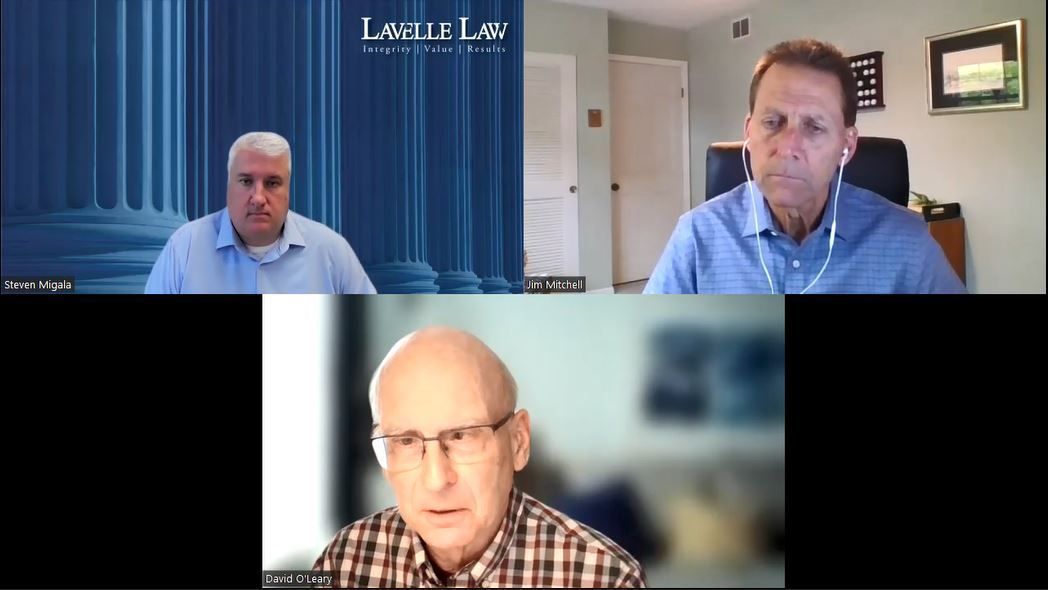POST-CLOSING CORPORATE GOVERNANCE DOCUMENTS
Maximizing the benefits of acquiring, divesting, and merging companies
The post-closing period often requires a lot of transition work where the acquiror is working to adjust the target’s business to the new ownership and strategy. An important part of this transition is setting up a good corporate governance program. Our firm has developed a corporate compliance program that ensures that the company’s corporate book is in order and helps our client stay on track with corporate formalities and reporting. Further, our attorneys possess expertise in drafting customized bylaws, shareholder or operating agreements, buy-sell agreements, and other documents governing internal affairs of companies.
Mergers and Acquisitions Posts
Lavelle Law News and Events

A Type F reorganization (“F Reorg”), governed by Section 368(a)(1)(F) of the Internal Revenue Code, provides a strategically significant mechanism for corporate restructuring. Defined as a “mere change in identity, form, or place of organization of one corporation,” an F Reorg permits a corporation to alter its legal existence while being treated for federal tax purposes as the same entity. This recharacterization allows for the uninterrupted preservation of tax attributes while maintaining shareholder continuity.

In the August article, I discussed the proposed merger guidelines issued by the U.S. Department of Justice Antitrust Division (“DOJ”) and the Federal Trade Commission (“FTC” and collectively with DOJ, “Agencies”). They were finalized and released by the Agencies on December 18, 2023. They continue the Biden Administration’s theme of increased scrutiny of mergers and stricter enforcement of antitrust laws.

On July 19, 2023, the U.S. Department of Justice Antitrust Division (“DOJ”) and the Federal Trade Commission (“FTC” and collectively with DOJ, “Agencies”) issued their proposed joint merger guidelines (“Proposed Guidelines”) to be used in analyzing whether a merger is illegal, reflecting the Biden Administration’s competition policy and existing enforcement priorities. After a 60-day comment period that closes on September 18, 2023, the DOJ and FTC will finalize them. The Proposed Guidelines will replace the Agencies’ 2010 Horizontal Merger Guidelines and their 2020 Vertical Merger Guidelines, which the FTC (but not the DOJ) has already repealed.

In the current interest rate environment, sellers and buyers of businesses are increasingly faced with financing shortfalls from traditional commercial lenders as roadblocks to getting deals closed. When this occurs, sellers and buyers often turn to seller financing, also known as owner-financing, as an efficient means to bridge the gap.

In this video podcast, Lavelle Law attorneys Steven Migala and David O'Leary review the advantages and strategies of using an Employee Stock Ownership Plan as a business succession option. ESOPs are a mechanism by which owners can sell their business to employees allowing their legacy to be protected. Learn about the advantages of the approach and some of the mechanisms involved in an ESOP transaction from two very experienced attorneys.

An Employee Stock Ownership Plan (“ESOP”) is a type of qualified employee benefit plan that is designed to invest primarily in the stock of the sponsoring company. It provides employees with an ownership interest in the company, giving them an incentive to be more productive. It is also a retirement plan and shareholder transition vehicle which may provide selling shareholders and the company with significant tax benefits.

Consider the following scenario: Two brothers own and operate a heating and ventilation company called “Brother’s Heating & Cooling, Inc.” Each of the brothers owns half the stock of the company. Over the years, many family members of the two brothers work for the company.
Two years ago, the company started to accumulate excessive debt. The company is unable to generate enough revenue or take on more debt to pay its obligations.




